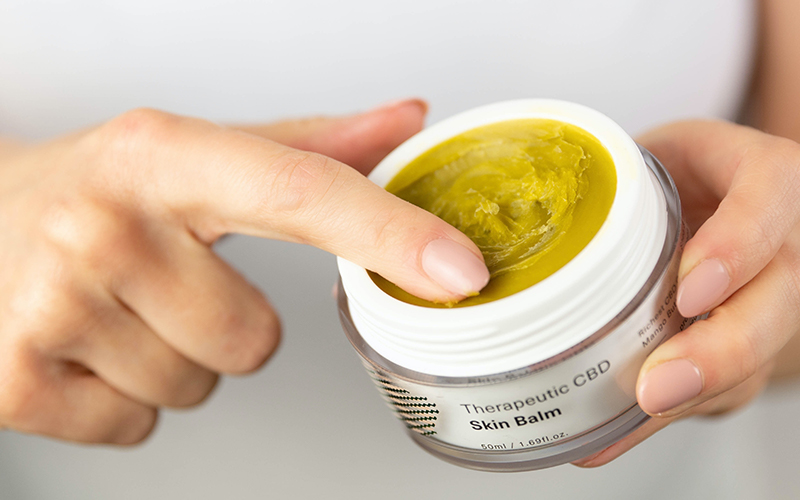Cannabidiol (CBD) is fast becoming the new buzzword in skincare—and now science is starting to catch up.
A comprehensive review published in the journal Biomolecules highlights CBD’s therapeutic potential in treating a wide range of skin conditions, from acne and psoriasis to pigmentation disorders and even certain skin cancers. But while the non-intoxicating cannabis compound looks promising, experts say more rigorous research and regulation are needed before it can become a skincare staple.
The Science Behind the Hype
CBD, a naturally occurring compound found in cannabis plants, has been shown to have anti-inflammatory, antioxidant, antibacterial, pain-relieving, and anti-proliferative properties. These qualities are especially useful for inflammatory and immune-related skin issues, as well as for promoting skin hydration, healing, and protection from environmental damage, the study reports.
Researchers from the George Emil Palade University in Romania reviewed dozens of recent studies and concluded that CBD could play a key role in both dermatology and cosmetic science.
Among the standout findings:
- CBD may help manage skin cancers like melanoma, squamous cell carcinoma, and Kaposi sarcoma.
- It shows potential in treating pigmentation disorders such as melasma and vitiligo.
- Short-term use on human skin appears generally safe, with no significant allergic reactions reported.
From Acne to Aging: Where CBD Fits In
The paper says that topical and transdermal CBD formulations could be effective in treating:
- Acne
- Psoriasis (including scalp psoriasis)
- Atopic dermatitis
- Seborrheic dermatitis
- Allergic contact dermatitis
Thanks to its anti-inflammatory and moisturizing effects, CBD is also being explored for:
- Wound healing
- Skin rejuvenation
- Anti-aging treatments
- Post-procedure recovery
- Sensitive skin care
- Men’s grooming products
But It’s Not All Smooth Skin Ahead
Despite the enthusiasm, the researchers caution that CBD’s journey into mainstream skincare is still riddled with challenges.
Key limitations include:
- Poor water solubility
- Limited skin penetration
- Lack of standard formulations
- Regulatory inconsistencies
- A shortage of large-scale clinical trials
“There’s a need for more robust scientific validation,” the authors write, warning against misleading marketing claimsoften found in today’s CBD-infused products. Many of these products are not FDA-approved, and labels may not accurately reflect cannabinoid content, potentially misleading consumers and raising safety concerns.
Formulation Science: A Game-Changer?
To tackle these challenges, scientists are working on new delivery systems to improve how CBD is absorbed through the skin. These technologies could enhance stability, solubility, and effectiveness, helping CBD reach deeper skin layers and deliver more consistent results.
“Innovative formulation technologies are crucial,” the study notes. “Advanced delivery systems and synergistic combinations yield more effective and targeted CBD products.”
A Growing—but Cautious—Market
The review concludes that CBD holds significant potential in skincare, particularly in niche markets and specialized treatments. But without proper regulations and scientific backing, the sector risks being overshadowed by hype and misinformation.
A separate 2024 review in Molecules echoed similar sentiments, calling for a deeper understanding of how cannabinoids, terpenes, and flavonoids work together to unlock the full therapeutic benefits of cannabis.
Related Research on Cannabis in Health
The therapeutic versatility of cannabinoids continues to attract attention in medical science beyond skincare. For example, researchers have found that cannabis compounds may help relieve symptoms of inflammatory bowel disease (IBD), with both anti-inflammatory and pain-relieving effects playing a role in symptom control. Read more about cannabis and IBD here.
Similarly, ongoing studies have examined the barriers to using cannabis as a treatment for endometriosis, despite strong anecdotal support and emerging evidence. Explore the endometriosis treatment gap.
Additionally, a growing body of work is looking at how cannabinoids can be combined with gold nanoparticles for targeted cancer therapy, offering a promising pathway for non-toxic treatments. Learn more about cannabinoid–nanoparticle synergies in cancer care.

